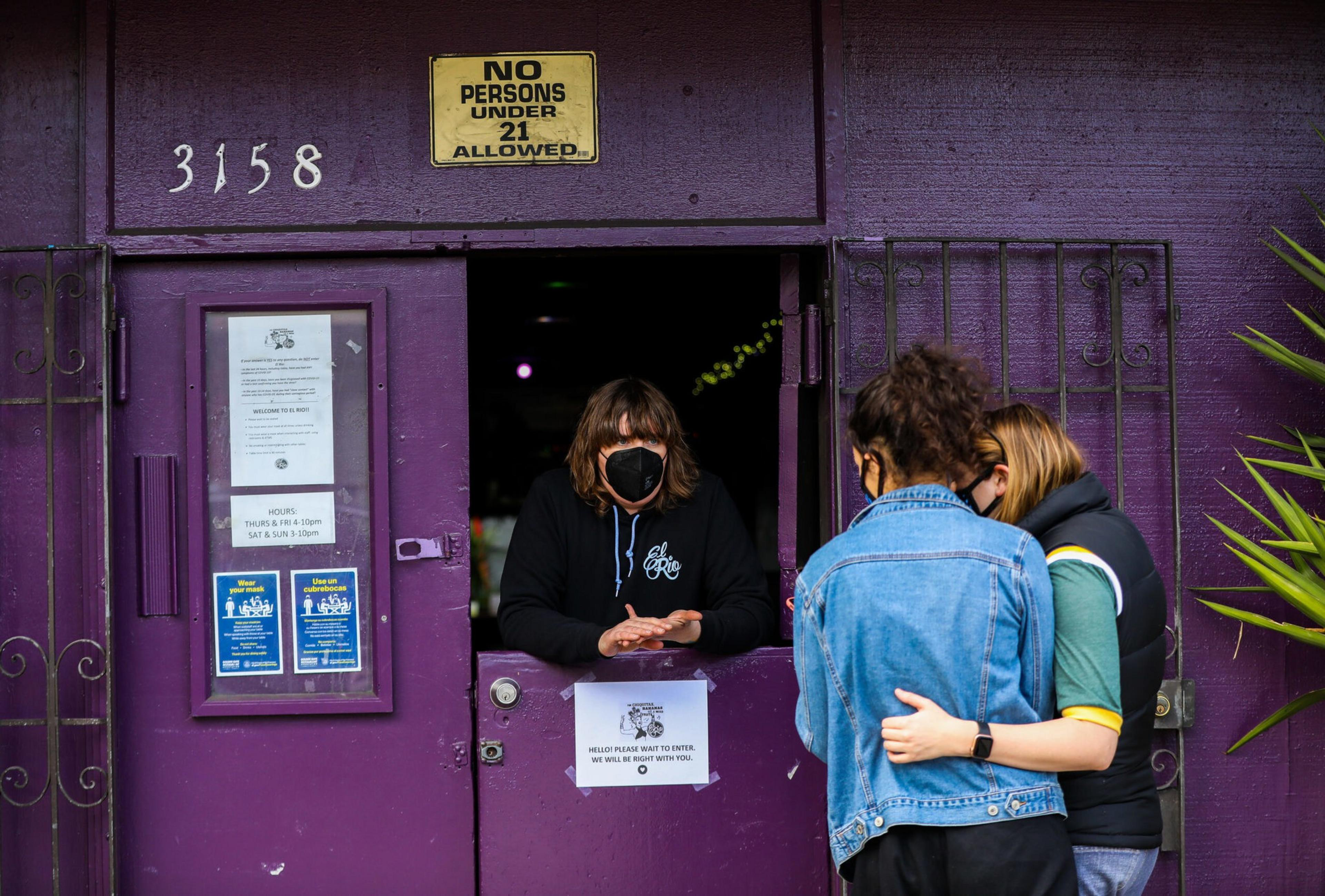Nearly two years to the day that San Francisco imposed its shelter-in-place order, the city is marking another milestone on the road back to normal life.
Starting March 11, the city will no longer require proof of vaccination or a negative test at bars, restaurants and gyms, reversing a policy that has been in place since last summer. The move follows a general easing in Covid-related restrictions similar to the lifting of San Francisco’s universal mask mandate on Feb. 16.
Ben Bleiman, who owns the bars Teeth and Soda Popinski’s, hailed the move as the first time in nearly two years that he can go back to business as usual. As the president of the San Francisco Bar Alliance, Bleiman helped spearhead a policy last July (opens in new tab) to require a vaccine or a negative test at bars across the city. That was followed by a wider city order that went into place in August and applied to restaurants, bars and fitness centers.
“I think it will be a material change, it will save us a lot of time and effort checking IDs and vaccines—that’s not nothing,” Bleiman said. “There’s also the symbolic part of lifting it, and that’s not nothing, too.”
Currently, 83% of San Francisco residents are vaccinated. Based on conversations with colleagues, Bleiman expects a “near-universal” move by bars to stop checking for proof of vaccination.
Like the loosened restrictions on masks, the new policy leaves the door open for individual businesses to make their own decisions on requiring vaccines.
Cassava, a restaurant in the Outer Richmond, has decided to continue its existing mandate. In December, it became one of the first restaurants in the city to require proof of a booster shot for indoor dining, a move co-owner Yuka Ioroi said was mainly introduced to protect staff.
Diners at Cassava will still be required to show proof of vaccination and a booster to sit in the restaurant’s tight 10-person dining room. Since the introduction of the policy, Ioroi said, customers who are unable to be vaccinated because of medical issues have sought out Cassava because of its practices. The restaurant allows those medically unable to be vaccinated to dine indoors.
Ioroi said she asked her staff about lifting the vaccine requirement, but the majority said it was too early to do so safely, particularly with potential risks from the Omicron subvariant (opens in new tab) and long Covid.
“There’s no major cure or treatment for long Covid,” Ioroi said. “People just want to push back to normal, even though you may get a lifelong effect from being infected.”
Dr. Peter Chin-Hong, an infectious disease expert at UC San Francisco, said the situation around the virus warrants a more relaxed approach. As of March 10, only 12 patients are hospitalized with Covid across UCSF’s four hospitals. That compares to around 150 during the peak of the Omicron wave in January.
Chin-Hong noted that the lifting of mask requirements last June was followed by two successive waves of infection, so individuals better understand the rubberbanding nature of the virus and are prepared to abide by restrictions if Covid surges again.
“Nobody is saying we’re in victory or that Covid is over, but you can still be psyched to be able to relax a little longer, while preparing the house for the upcoming rainy season,” Chin-Hong said.
That evolution matches with California’s larger strategic shift to combat the virus. California’s SMARTER Plan is now predicated on living with Covid and being ready for future surges, rather than promising to eliminate the virus completely.
Chin-Hong also contrasted vaccine mandates in restaurants or bars with mandates in places like health care facilities, where continuing operations is paramount.
Bleiman said he completely understands if any individual business wants to continue to require proof of vaccination as a safety measure. Still, as he listed a litany of forthcoming big-money events for bars—including St. Patrick’s Day, March Madness and SF Pride—he said the timing is ideal.
“We’re flexible. If public health requires it, bar owners will do the right thing and put it in place again,” Bleiman said. “But for right now? Let’s party!”
